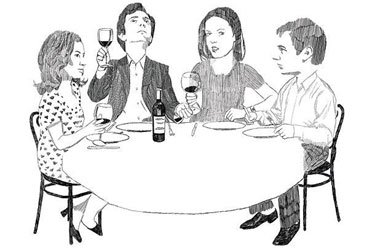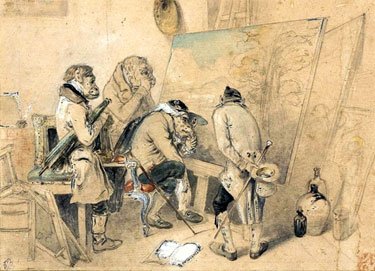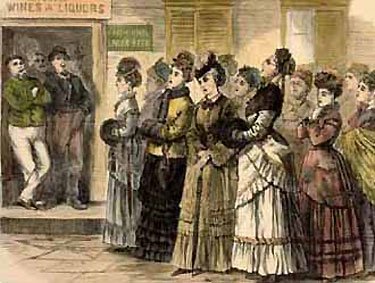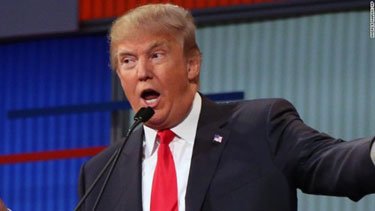Category Archive 'The Elect'
04 Jan 2017
Sally Fields and a bunch of Hollywood types you never heard of are warning Congress that they will not tolerate Donald Trump’s “Racism, Sexism, or Xenophobia” and that they expect Congress to block any legislation opposed to the interests of any and all of the fashionable Left’s pet victim groups of privilege.
If Congress fails to oblige, I guess they’ll all sit down and have a great big cry or make another ineffably self-important video.
16 Dec 2016


In the New York Times, Tatiana Schlossberg (Caroline Kennedy’s daughter, Y’ 12) explains that if the weather’s getting cooler, that doesn’t mean there isn’t Global Warming. Why, well-educated members of the community of fashion elect can even explain to you that Global Warming actually can cause colder weather!
On Thursday, temperatures on the East Coast are expected to plummet, and some people — fellow journalists and weather broadcasters, we’re looking at you — may start talking about a “polar vortex.â€
We thought you might want to know what the polar vortex is, and what it’s not.
(And we wanted to pre-empt the inevitable chatter about climate change that usually crops up when the thermometer drops — “It’s bone-shakingly cold, how could the Earth be warming?†We’ll tell you how.) …
When these cold snaps come, you may hear other people asking,†If global warming is supposed to be warming the globe, then why is it so cold?â€
Well, for starters, there is a difference between weather and climate. Climate refers to the long-term averages and trends in atmospheric conditions over large areas, while weather deals with short-term variations, which is what happens when the polar vortex visits your hometown.
And of course, an Arctic blast can still occur in a warmer world. The air that comes down from the North Pole might not be as cold, Ms. Barthold said, but it would still be the product of the same phenomenon.
Some studies suggest that climate change could actually make these frigid waves of Arctic air more common, a result of shrinking sea ice. However, other scientists remain skeptical of this theory.
And the earth is definitely warming: Temperature records show that, by the end of last year, the earth’s surface had warmed by about 1.8 degrees Fahrenheit since the 19th century. But even though the earth’s surface is warming, scientists say that winter will still exist.
And even if parts of the United States are experiencing unusually cold temperatures, it represents such a small portion of the earth’s surface — about 2 percent — that it does not mean much in terms of average global temperatures.
So, if, for instance, a senator (perhaps James M. Inhofe, Republican of Oklahoma) brandishes a snowball on the floor of the Senate to dispute the validity of climate science when a chill wind blows through Washington, you will know that the unseasonably cold temperatures he is talking about do not mean that global warming is not happening.
It is.
Apparently the Great Big Brains have understood all this for years. Warmlist, the attempted complete list of all the things caused by Anthropogenic Global Warming, already has listed:
cold spells, cold spells (Australia), colder waters (Long Island), cold wave (India), cold weather (world), cold winters
28 Sep 2016


Thomas Cole, The Course of Empire: Destruction, 1833-1836, New York Historical Society.
In Claremont Review, Angelo M. Codevilla describes how “the malfeasance of our ruling class” has transformed America and brought us to the point of this year’s disgraceful presidential election.
in today’s America, those in power basically do what they please. Executive orders, phone calls, and the right judge mean a lot more than laws. They even trump state referenda. Over the past half-century, presidents have ruled not by enforcing laws but increasingly through agencies that write their own rules, interpret them, and punish unaccountably—the administrative state. As for the Supreme Court, the American people have seen it invent rights where there were none—e.g., abortion—while trammeling ones that had been the republic’s spine, such as the free exercise of religion and freedom of speech. The Court taught Americans that the word “public†can mean “private†(Kelo v. City of New London), that “penalty†can mean “tax†(King v. Burwell), and that holding an opinion contrary to its own can only be due to an “irrational animus†(Obergefell v. Hodges).
What goes by the name “constitutional law†has been eclipsing the U.S. Constitution for a long time. But when the 1964 Civil Rights Act substituted a wholly open-ended mandate to oppose “discrimination†for any and all fundamental rights, it became the little law that ate the Constitution. Now, because the Act pretended that the commerce clause trumps the freedom of persons to associate or not with whomever they wish, and is being taken to mean that it trumps the free exercise of religion as well, bakers and photographers are forced to take part in homosexual weddings. A commission in the Commonwealth of Massachusetts reported that even a church may be forced to operate its bathrooms according to gender self-identification because it “could be seen as a place of public accommodation if it holds a secular event, such as a spaghetti supper, that is open to the general public.†California came very close to mandating that Catholic schools admit homosexual and transgender students or close down. The Justice Department is studying how to prosecute on-line transactions such as vacation home rental site Airbnb, Inc., that fall afoul of its evolving anti-discrimination standards. …
No one running for the GOP nomination discussed the greatest violation of popular government’s norms—never mind the Constitution—to have occurred in two hundred years, namely, the practice, agreed upon by mainstream Republicans and Democrats, of rolling all of the government’s expenditures into a single bill. This eliminates elected officials’ responsibility for any of the government’s actions, and reduces them either to approving all that the government does without reservation, or the allegedly revolutionary, disloyal act of “shutting down the government.†…
The ruling class having chosen raw power over law and persuasion, the American people reasonably concluded that raw power is the only way to counter it, and looked for candidates who would do that. Hence, even constitutional scholar Ted Cruz stopped talking about the constitutional implications of President Obama’s actions after polls told him that the public was more interested in what he would do to reverse them, niceties notwithstanding. Had Cruz become the main alternative to the Democratic Party’s dominion, the American people might have been presented with the option of reverting to the rule of law. But that did not happen. Both of the choices before us presuppose force, not law. …
In today’s America, a network of executive, judicial, bureaucratic, and social kinship channels bypasses the sovereignty of citizens. Our imperial regime, already in force, works on a simple principle: the president and the cronies who populate these channels may do whatever they like so long as the bureaucracy obeys and one third plus one of the Senate protects him from impeachment. If you are on the right side of that network, you can make up the rules as you go along, ignore or violate any number of laws, obfuscate or commit perjury about what you are doing (in the unlikely case they put you under oath), and be certain of your peers’ support. These cronies’ shared social and intellectual identity stems from the uniform education they have received in the universities. Because disdain for ordinary Americans is this ruling class’s chief feature, its members can be equally certain that all will join in celebrating each, and in demonizing their respective opponents.
And, because the ruling class blurs the distinction between public and private business, connection to that class has become the principal way of getting rich in America. Not so long ago, the way to make it here was to start a business that satisfied customers’ needs better than before. Nowadays, more businesses die each year than are started. In this century, all net additions in employment have come from the country’s 1,500 largest corporations. Rent-seeking through influence on regulations is the path to wealth. In the professions, competitive exams were the key to entry and advancement not so long ago. Now, you have to make yourself acceptable to your superiors. More important, judicial decisions and administrative practice have divided Americans into “protected classesâ€â€”possessed of special privileges and immunities—and everybody else. Equality before the law and equality of opportunity are memories. Co-option is the path to power. Ever wonder why the quality of our leaders has been declining with each successive generation?
A must read.
26 Sep 2016


Tim Black argues that choice of life-style has become politicized which in turn has inflamed politics.
In one of his last speeches as Labour leader in 2006, [Tony] Blair said that the new debate in politics was not left against right, but ‘open vs closed’ – openness to immigration, to diversity, and so on. And he was right. Politics has been waged as a war on those with supposedly ‘closed’ minds, those who ‘cling’ to older traditions and rituals, those who, in the case of Brexit, prefer a national democracy to a transnational oligarchy. And this year, the ‘closed’ fought back.
But there’s something else, too. Not only has culture been completely politicised, and turned into an object of public contestation; politics has also become culturalised, aestheticised. It has been turned into a way of expressing oneself, of marking one’s distinction to others, of showcasing one’s superior political taste – a question, as one Guardian journalist put it, of ‘who we are’. Being political today – whether that involves expressing one’s feminism, or proudly proclaiming ‘black lives matter’ – has become a way of saying something determinate not about the world, but about oneself, and, in the process, negating others. Conservative lettrist Joseph Epstein calls this new political type ‘the virtucrat’ – ‘the new prig… [who] will nail you for not having his opinion on Israel or the environment’. He is ‘a moral snob’, Epstein continues; ‘not only is he smug about the righteousness of his views but he imputes bad faith to anyone who doesn’t share them’.
And this is a profound problem. The aestheticisation of politics, the emergence of an intense political snobbery, lends debate an intractable, compromise-defying quality. It comes to appear not just as a conflict between utterly incompatible ways of life, but also as an intensely personal conflict, where arguments take the form of personal insults, and electoral defeats are experienced as personal affronts. In the strangely emotional reaction of Remainers to the referendum result, which included vituperative columns about racists in our midst, public tears and, absurdly, post-vote marches, one can see the the flipside of the polticisation of culture and lifestyle; the stylisation of politics, its mutation into a means not of winning the support of others, but of asserting their inferiority, of casting their lives into arbitrariness.
Read the whole thing.
Hat tip to Matthias Storme.
17 Sep 2016


Alexandre-Gabriel Decamps, The Experts, 1837, National Museum Warsaw.
Nassim Nicholas Taleb inveighs against the pseudo-intelligentsia whose excesses in America have resulted in the Trumpkin Jacquerrie.
What we have been seeing worldwide, from India to the UK to the US, is the rebellion against the inner circle of no-skin-in-the-game policymaking “clerks†and journalists-insiders, that class of paternalistic semi-intellectual experts with some Ivy league, Oxford-Cambridge, or similar label-driven education who are telling the rest of us 1) what to do, 2) what to eat, 3) how to speak, 4) how to think… and 5) who to vote for. …
The Intellectual Yet Idiot is a production of modernity hence has been accelerating since the mid twentieth century, to reach its local supremum today, along with the broad category of people without skin-in-the-game who have been invading many walks of life. Why? Simply, in many countries, the government’s role is ten times what it was a century ago (expressed in percentage of GDP). The IYI seems ubiquitous in our lives but is still a small minority and rarely seen outside specialized outlets, social media, and universities — most people have proper jobs and there are not many opening for the IYI.
Beware the semi-erudite who thinks he is an erudite.
The IYI pathologizes others for doing things he doesn’t understand without ever realizing it is his understanding that may be limited. He thinks people should act according to their best interests and he knows their interests, particularly if they are “red necks†or English non-crisp-vowel class who voted for Brexit. When Plebeians do something that makes sense to them, but not to him, the IYI uses the term “uneducatedâ€. What we generally call participation in the political process, he calls by two distinct designations: “democracy†when it fits the IYI, and “populism†when the plebeians dare voting in a way that contradicts his preferences.
Read the whole thing.
01 Aug 2016


St. Paul’s
What with the rebellion of the low-information voter and the ascent of Donald Trump, the white working class is in the news a lot these days and everyone is reading J.D. Vance’s Hillbilly Elegy (previously mentioned here), a personal eulogy from an upwardly-mobile ex-Marine to his rust-bucket hometown and left-behind family and friends.
The perfect counterpoint book to read, I think, is Shamus Rahman Khan’s Privilege: The Making of an Adolescent Elite at St. Paul’s School.
J.D. Vance describes how History and Culture have failed our society’s losers.
Shamus Rahman Khan describes, with a mixture of astonishment and congratulatory applause, just how one of the absolutely snobbiest and most expensive secondary boarding schools in America (the place that educated John Kerry and Doonesbury’s Gary Trudeau) educates future winners in a combination of graceful personal ease, the ability to fake your way through anything you don’t actually know, and a nihilistic belief in the complete equality of all things (excluding only your own special elite status).
St. Paul’s often touts its academic program as the best in the nation. In its advertising literature, the school boasts that it has “the highest level of scholarship” and that its “students stand at the top of their peer group in terms of academic preparation.” And according to eager administrators and lackadaisical adolescents alike, the centerpiece of St. Paul’s academic program is undoubtedly the humanities. The humanities program introduces students to the history, literature, and thoughts of different moments in world history. The humanities division describes in some project is an interdisciplinary, multi-vocal investigation of “great questions.” …
This program, significantly, does not teach students to know “things.” The emphasis is not on memorizing historical events, for example. Instead it is on cultivating “habits of mind,” which encourage a particular way of relating both to the world and to each other. …
The enormity of this program is both thrilling and terrifying. The thought of knowing all of that, being swept up and carried through the tide of history, is tantalizing. It is also the product of St. Paul’s hubris. How can any one person possibly teach everything..? As I prepared to teach my own class at the school, I soon found out that I was asking the wrong question. Of course the expectations were ridiculous. No high schooler could ever learn all that the course offers. The more important question, I eventually realized, is much harder to answer: what this mean to present material in this way to teenagers?
Perhaps the point is not really to know anything. The advantage the St. Paul’s installs instills in its students is not a hierarchy of knowledge. As we have seen, knowledge is no longer the exclusive domain of the elite. And these days, information flows so freely that to use it to exclude others is increasingly challenging. By contrast, the important decisions required for those who lead are not based on knowing more but instead are founded in habits of mind. St. Paul’s teaches that everything can be accomplished through these habits, even while still in high school. What strikes me as presumptuous, even shocking, about this vision of the world is taken for granted by pretty much every teenager at St. Paul’s.
Though I marveled at how impossible it seemed to teach students all these things, the school itself seems largely unconcerned about this. Indeed, St. Paul’s approach seems closer to Plato’s outline of education in Republic. Building upon his famous cave metaphor, Plato tells us, “Education isn’t what some people declare it to be, namely putting knowledge of the souls that lack it, like putting sight into blind eyes …” ..In short, education is not teaching students things they don’t know. Rather it is teaching them to think their way through the world. …
“I don’t actually know much,” an alumnus told me after he finished his freshman year at Harvard. “I mean, well, I don’t know how to put it. When I’m in classes all these kids next to me know a lot more than I do. Like about what actually happened in the Civil War. Or what France did in World War II. I don’t know any of that stuff. But I know something they don’t. It’s not facts or anything. It’s how to think. That’s what I learned in humanities.”
“What do you mean how to think?” I asked.
“I mean I learned how to think bigger. Like everyone else at Harvard knew about the Civil War. I didn’t. But I knew how to make sense of what they knew about the Civil War and apply it. So they knew a lot about particular things. I knew how to think about everything.”
The emphasis of the St. Paul’s curriculum is not on “what you know” but on “how you know it.” Teaching ways of knowing rather than teaching the facts themselves, St. Paul’s is able to endow its students with marks of the elite –ways of thinking or relating to the world– that ultimately help make up privilege. As the exclusionary practices of old the become unsustainable, something new has emerged from within the elite. …
[S]tudents learn to consume from an enormous variety of sources. They learn to work and “interact” with art, literature, history, from the popular to the scholarly, and have a huge range of materials their disposal. For example, one of the major assignments in Humanities III is to compare “Beowulf” to Steven Spielberg’s “Jaws.” Students are asked to think about the ways in which Beowulf is a monster [Beowulf is the hero. Grendel is the monster. –JDZ] that man must confront, just as “Jaws”‘s monster prowls the waters of humanity (and perhaps even our own internal waters [And the BS keeps on flowing. –JDZ]). The goal is not to endow the students with a kind of highbrow elite knowledge. Rather, they are taught to move with ease to the broad range of culture, to move with felicity from the elite to the popular. They learn to be cultural egalitarians. The lesson to students is that you can talk about “Jaws” in the same way you can talk about “Beowulf.” Both become cultural resources to draw upon. And most important, the world is available to you –from high literature to horror films. They’re not things that are “off-limits” –limits are not structured by the relations of the world around you; they are in you. Students are not to stand above the mundane, perhaps lowbrow horror flick. Instead they are taught the importance of engaging with all aspects of culture, of treating the high and low with respect and serious engagement. As our future elite, the students are taught not to create fences and moats but instead to relentlessly engage with the varied world around them.
The consequences of St. Paul’s philosophy can be seen all over campus, evident even in how students carry themselves. Students have the sense that they could do it. The world is a space to be navigated and renegotiated, not a set of arrangements or a list of rules that are imposed upon you. The students are taught that they are special, and they begin to realize this specialness. This is a kind of self-fulfilling prophecy –thinking everything is possible just might make it so.
25 Jul 2016


Michael Ginsberg is fed up with experts trained neither in facts or real skills, but in the Humanities-style “How to Think in General” kind of elite education.
I trained to be an engineer in college and graduate school. When I went to college, I viewed it as job training. School had a purpose, and I had a mission: prepare myself for the working world by developing skills and a vocation. It was hard work: hours upon hours in labs, in libraries working on problem sets, or studying in my dorm room. It wasn’t easy, but I kept going because I believed engineering was one of the most essential disciplines to Americans’ quality of life and the defense of the nation.
Yet throughout my time in school, it always gnawed at me that my fellow classmates in other disciplines—the students of government, political science, and policy, masters of words, theories, and rules—were going to graduate, occupy positions of power, and determine how I would be able to live my life and run my career. Never mind that many of them started their weekends on Thursdays and probably never took a class in the hard sciences while I was sweating away night and day in the engineering library. They were going to grow up and make decisions that would control my life.
I went to an Ivy League school, and the piece of parchment with the school name was going to open the doors to the gilded life that would allow them to, as one of my schoolmates put it, “rule the world.†Use the school name to get the right internships and make the right connections, and the world would open up for them. (Instead, I repeatedly had job interviewers tell me, “I didn’t know your Ivy League school had engineering.â€) I resented it deeply.
That resentment dissipated over time, but never quite went away. …
My resentment, long in remission, came back and crystallized in the following thought: Americans are governed by politicians who see fit to reimagine entire sectors of our economy and, indeed, our lives despite having little, if any, experience in the areas of life they seek to reform wholesale. This means Americans, seeing the failures of government from Obamacare to the Veterans Affairs, from the Environmental Protection Agency dumping toxic materials into a Colorado river to the Dodd-Frank regulations strangling local community banks, have had just about enough of their credentialed but utterly inexperienced supposed betters reordering their lives and livelihoods.
Read the whole thing.
Hat tip to the News Junkie.
15 Jul 2016


This is the Meritocracy?
Helen Andrews casts a jaundiced look at The New Ruling Class in Hedgehog Review.
Meritocracy began by destroying an aristocracy; it has ended in creating a new one. …
Not since the Society of the Cincinnati has a ruling elite so vehemently disclaimed any resemblance to an aristocracy. The structure of the economy abets the elite in its delusion, since even the very rich are now more likely to earn their money from employment than from capital, and thus find it easier to think of themselves basically as working stiffs. As cultural consumers they are careful to look down their noses at nothing except country music. All manner of low-class fare—rap, telenovelas, Waffle House—is embraced by what Shamus Rahman Khan calls the “omnivorous pluralism†of our elite. “It is as if the new elite are saying, ‘Look! We are not some exclusive club. If anything, we are the most democratized of all groups.’â€
Khan’s Privilege: The Making of an Adolescent Elite at St. Paul’s School is a fascinating document, because he seems to have been genuinely surprised by what he found when he returned to his old boarding school to teach for a year. Khan, the grandson of Irish and Pakistani peasants, worked his way to a Columbia University professorship in sociology via St. Paul’s and Haverford College. So he thought he knew meritocrats—but today’s breed gave him a bit of a fright. For one thing, they proved to be excellent haters. Consider how they talk about a legacy student whose background can be inferred from the pseudonym Khan gives him, “Chase Abbottâ€:
After seeing me chatting with Chase, a boy I was close with, Peter, expressed what many others would time and again: “that guy would never be here if it weren’t for his family.… I don’t get why the school still does that. He doesn’t bring anything to this place.†Peter seemed annoyed with me for even talking with Chase. Knowing that I was at St. Paul’s to make sense of the school, Peter made sure to point out to me that Chase didn’t really belong there.… Faculty, too, openly lamented the presence of students like Chase.
“Openly lamentedâ€! Poor Chase. This hatred is out of all proportion to the power still held by the Chases of the school, which is almost nil. Khan discovers that the few legacy WASPs live together in a sequestered dorm, just like the “minority dorm†of his own schooldays, and even the alumni “point to students like Chase as examples of what is wrong about St. Paul’s.†No, the hatred of students like Chase feels more like the resentment born of having noticed an unwelcome resemblance. It is somehow unsurprising to learn that Peter’s parents met at Harvard.
Of course, Peter is not at St. Paul’s because his parents went to Harvard; as he makes clear to Khan, he is there because of his hard work and academic achievement. Here we have the meritocratic delusion most in need of smashing: the notion that the people who make up our elite are especially smart. They are not—and I do not mean that in the feel-good democratic sense that we are all smart in our own ways, the homely-wise farmer no less than the scholar. I mean that the majority of meritocrats are, on their own chosen scale of intelligence, pretty dumb. Grade inflation first hit the Ivies in the late 1960s for a reason. Yale professor David Gelernter has noticed it in his students: “My students today are…so ignorant that it’s hard to accept how ignorant they are.… [I]t’s very hard to grasp that the person you’re talking to, who is bright, articulate, advisable, interested, and doesn’t know who Beethoven is. Had no view looking back at the history of the twentieth century—just sees a fog. A blank.†Camille Paglia once assigned the spiritual “Go Down, Moses†to an English seminar, only to discover to her horror that “of a class of twenty-five students, only two seemed to recognize the name ‘Moses’.… They did not know who he was.â€
Hat tip to The Barrister.
07 Jan 2016


R.R. Reno, at First Things, explains why Donald Trump goes up in the polls every time he opens his mouth and says something the establishment elite finds absolutely unacceptable.
When I was a boy, the popular humorist Corey Ford wrote a monthly column for Field & Stream about the questionable activities of a rural New Hampshire sportsman’s club called “The Lower Forty.”
Good old boys Judge Parker, Doc Hall, Cousin Sid, and the undertaker Angus McNab hung out at Uncle Perk’s General Store sipping Old Stumpblower and telling yarns in the intervals between expeditions against deer, trout, and what they referred to up there as “paatridge.” The inveterate adversaries of the members of The Lower Forty were the scheming, miserly, and hypocritical Deacon Godfrey and his reformist allies in the Sisters of Samantha Sewing Circle. I often feel that I have lived to see Deacon Godfreys everywhere in high office and the entire population, male and female, of the urban community of fashion carrying “Sisters of Samantha” membership cards.
The upper twenty percent in America have insulated themselves from the economic and cultural consequences of the last fifty years. Meanwhile, those in the bottom half must live in disintegrating communities and endure the consequences of declining social capital. They sense, intuitively, that our leadership class has a narrow, materialistic view of life and a ruthless, managerial approach to “diversity†that undermines social solidarity, which is why they resonate with patriotic rhetoric that actually envisions all of us together, committed to a common good. Meanwhile, they see that their “betters†have rigged the game, so much so that even the slightest dissent from political correctness brings fierce, disciplining denunciations.
As I’ve written elsewhere (and often) we are living in a remarkable era. Our ruling class has re-invented itself as a technocracy that justifies its power by claiming moral superiority—and which dismisses challengers from below as morally deficient. We haven’t seen this kind of moral attack on working people since the salad years of the Temperance movement, another era when the well-off thought little of entering the public square… to denounce the moral depravity of the working man.
12 Sep 2015


Peggy Noonan argues that the European Refugee crisis features a major disconnect between the influential elites making the decisions and the ordinary citizens who have to live with the consequences.
Rules on immigration and refugees are made by safe people. These are the people who help run countries, who have nice homes in nice neighborhoods and are protected by their status. Those who live with the effects of immigration and asylum law are those who are less safe, who see a less beautiful face in it because they are daily confronted with a less beautiful reality—normal human roughness, human tensions. Decision-makers fear things like harsh words from the writers of editorials; normal human beings fear things like street crime. Decision-makers have the luxury of seeing life in the abstract. Normal people feel the implications of their decisions in the particular.
The decision-makers feel disdain for the anxieties of normal people, and ascribe them to small-minded bigotries, often religious and racial, and ignorant antagonisms. But normal people prize order because they can’t buy their way out of disorder.
People in gated communities of the mind, who glide by in Ubers, have bought their way out and are safe. Not to mention those in government-maintained mansions who glide by in SUVs followed by security details. Rulers can afford to see national-security threats as an abstraction—yes, yes, we must better integrate our new populations. But the unprotected, the vulnerable, have a right and a reason to worry.
Here is the challenge for people in politics: The better you do, the higher you go, the more detached you become from real life. You use words like “perception†a lot. But perception is not as important as reality.
The great thing in politics, the needed thing, is for those who are raised high in terms of responsibility and authority to be yet still, in their heads and hearts, of the people, experiencing life as a common person on an average street. The challenge is to carry the average street inside you. Only then, when the street is wrong, can you persuade it to see what is right.
The biggest thing leaders don’t do now is listen. They no longer hear the voices of common people. Or they imitate what they think it is and it sounds backward and embarrassing. In this age we will see political leaders, and institutions, rock, shatter and fall due to that deafness.
10 Aug 2015


Angelo M. Codevilla argues very cogently that Donald Trump’s ephemeral rise really signifies an unprecedented level of electoral dissatisfaction, not with a particular party or individual, but with the entire urban community of fashion establishment and ruling class. He contends that “The 2016 election is simple; the person who runs on the platform ‘Who do they think they are?’ will win.â€
Donald Trump leapt atop other contenders for the Republican presidential nomination when he acted on the primordial fact in American public life today, from which most of the others hide their eyes, namely: most Americans distrust, fear, are sick and tired of, the elected, appointed, and bureaucratic officials who rule over us, as well as their cronies in the corporate, media, and academic world. Trump’s attraction lies less in his words’ grace or even precision than in the extent to which Americans are searching for someone, anyone, to lead against this ruling class, that is making America less prosperous, less free, and more dangerous.
Trump’s rise reminds this class’s members that they sit atop a rumbling volcano of rejection. …
[O]ur ruling class has succeeded in ruling not by reason or persuasion, never mind integrity, but by occupying society’s commanding heights, by imposing itself and its ever-changing appetites on the rest of us. It has coopted or intimidated potential opponents by denying the legitimacy of opposition. Donald Trump, haplessness and clownishness notwithstanding, has shown how easily this regime may be threatened just by refusing to be intimidated.
Having failed to destroy Trump, Republicans and Democrats are left to hope that he will self-destruct as Perot did. Indeed, Trump has hardly scratched the surface and may not be able to do more than that. Yet our rulers know the list of things divide them from the American people is long. They want to avoid like the plague any and all arguments on the substance of those things. They fear the rise of an un-intimidated leader more graceful and precise than Trump, someone whose vision is fuller but who is even more passionate in championing the many resentments the voicing of just a few channeled so much support to Trump.
Read the whole thing.
Hat tip to Vanderleun.
04 Aug 2015


John Derbyshire explicates the two-minutes-of-hate observed all over Western society in honor of Dr. Palmer, the lion-slayer.
[W]hy the massive nationwide hysteria over a lion killed in a remote, badly misgoverned country, under some rather technical issues of local illegality, by a hunter who plausibly was not aware of those issues?
Because, inevitably, the whole incident became refracted through the lens of current public discourse in the U.S.A. into a skirmish in what I call the Cold Civil War: that is, the everlasting struggle between, on the one hand, the Progressive goodwhites who dominate our country’s mainstream culture—the Main Stream Media, the universities and law schools, big corporations, the federal bureaucracy—and, on the other hand, the ignorant gap-toothed hillbilly redneck badwhites clinging to their guns and religion out on the despised margins of civilized society.
Dr. Palmer is, of course, a badwhite. The evidence for this in in his actions. Hunting charismatic megafauna for sport is a thing only badwhites do. Big game trophy hunting is in fact as typically, characteristically badwhite as shopping at Whole Foods, or patronizing microbreweries, or listening to NPR are characteristically goodwhite.
For a full catalog of typical goodwhite lifestyle choices I refer you to Christian Landers’ 2008 book Stuff White People Like—slightly out of date now, but still reliable on most points. I have occasionally entertained the notion of putting out an updated version to be titled Stuff Goodwhites Like, with a companion volume titled, of course, Stuff Badwhites Like. Big game trophy hunting—indeed, hunting of all kinds—would definitely be listed in that latter volume, along with commercial beer, pickup trucks, Protestant Christianity, side-clip suspenders, NASCAR, and other badwhite favorites.
Read the whole thing. Derbyshire’s dissection of Jimmy Kimmel is too good to miss.
/div>

Feeds
|














